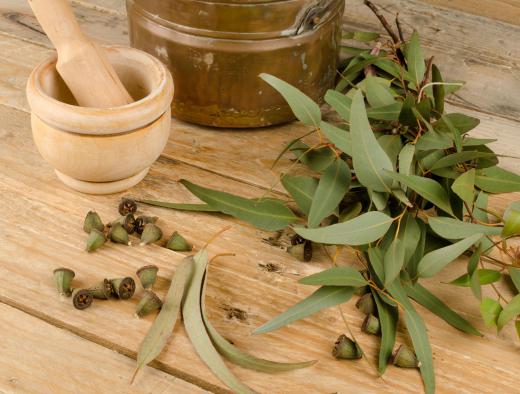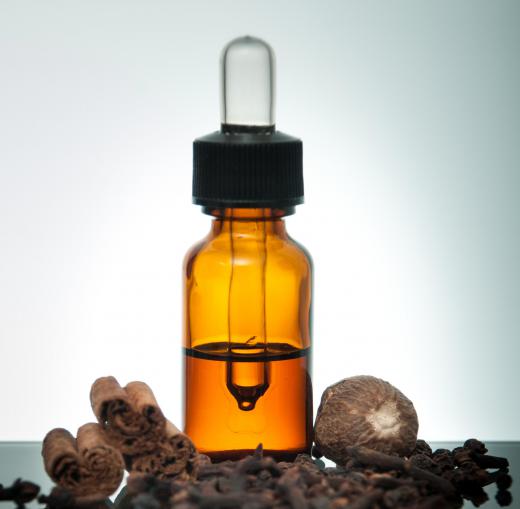What Is Steam Distillation?
Steam distillation is a method of isolating compounds which decompose at high temperatures by distilling them in such a way that steam is introduced into the raw material. Normally, distillation is employed in order to separate a substance from another substance with a higher boiling point. The mixture is heated to the boiling point of the substance to be extracted and the vapor cooled and condensed. This technique, however, is not suitable for compounds which decompose below their boiling points. For these compounds, steam distillation can be used, providing the compound is not miscible with water.
The boiling point of a liquid depends on the relationship between its vapor pressure and atmospheric pressure. The vapor pressure increases with temperature and on heating, the liquid will boil at the point where the vapor pressure equals the pressure of the atmosphere. Thus boiling can be achieved either by heating the liquid or by reducing atmospheric pressure. Some liquids, however, decompose at a temperature lower than their boiling point at normal atmospheric pressure. One solution to this problem is to use vacuum distillation or to distill under reduced pressure, so that the liquid boils at a lower temperature; another solution is steam distillation.

Where the compound of interest, normally an oil, is not miscible with water and has a higher boiling point, the vapor pressure of the two combined is the sum of their separate vapor pressures and so will be greater than that of the compound alone. The increase in vapor pressure achieved by mixing the compound with water or steam reduces the boiling point, allowing it to be distilled without decomposition. Normally, much more water than oil is distilled, but on cooling and condensing into a receiver, the two form distinct layers from which the oil can easily be separated. To maximize the amount of oil that is extracted, it is usual to have an excess of water over oil. In some cases, the material containing the oil is simply mixed with water and heated, while in other cases, the water may be boiled in a separate container and the resulting steam fed into the material being distilled.

A common application for steam distillation is the isolation of essential oils from plant material, such as herbs and spices. These oils can be used in flavorings, perfumes and in aromatherapy. Some have medical uses. Examples of essential oils often extracted by steam distillation are eucalyptus, cloves, orange, mint and citronella.
AS FEATURED ON:
AS FEATURED ON:












Discuss this Article
Post your comments